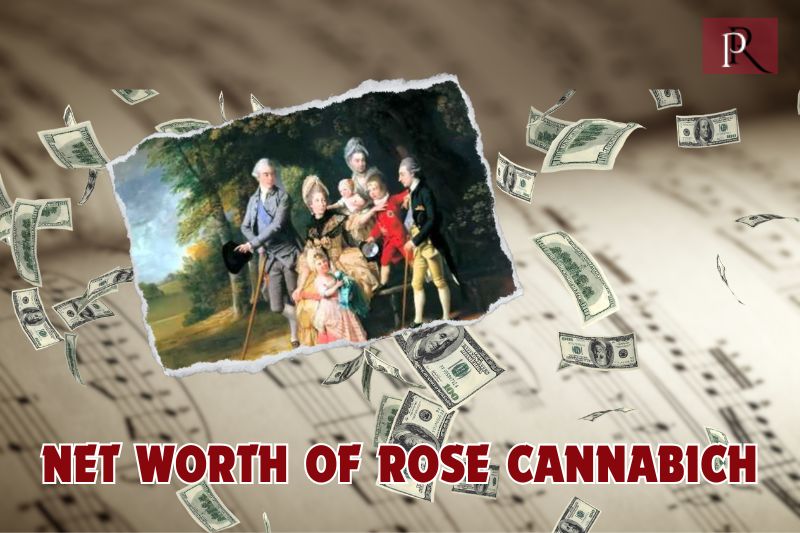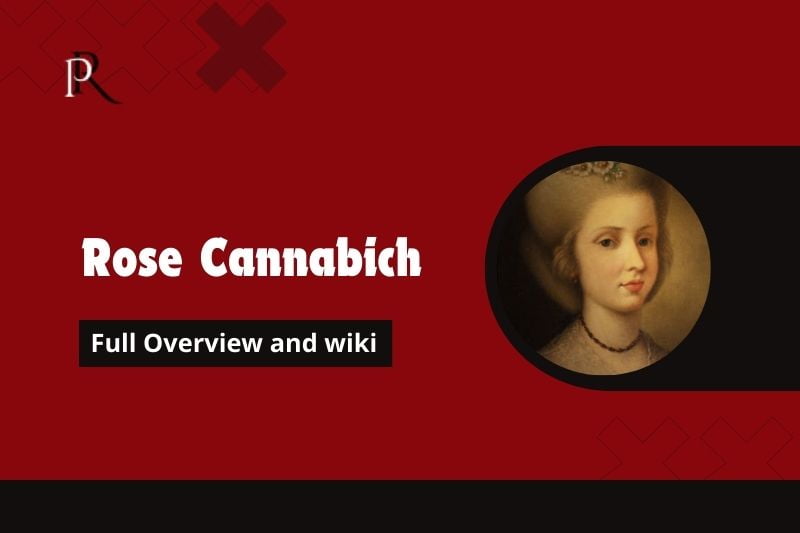Rose Cannabich, a renowned pianist, has captivated audiences around the world with her exceptional talent and dedication. In this article, we explore his musical career, achievements and fascinating details about Rose Cannabich net worth.
Quick information
| Real name | Rosina Theresia Petronella Cannabich |
| Popular name | Cannabis roses |
| Sex | Female |
| Date of birth | 1764 |
| Year old | Died at age 74-75 (1839) |
| Parents | Christian Cannabich, Maria Elisabeth de la Motte |
| Siblings | Carl August Cannabich, Elisabeth Augusta Cannabis |
| Place of birth | Mannheim, Germany |
| Nationality | German |
| Nation | do not apply |
| Education | Received her musical training mainly from her father and Wolfgang Amadeus Mozart |
| Marital status | Married |
| Sexual orientation | do not apply |
| Wife/Wife/husband | Mr. Schulz (name unknown) |
| Children | do not apply |
| Dating | do not apply |
| Net value | do not apply |
| Origin of wealth | Music, performance |
| Category | Classic music |
| Height | do not apply |
What is the net worth of rose cannabis in 2024?

Discussing the net worth of historical figures like Rose Cannabich poses a special challenge because direct financial records from the 18th century are often unavailable.
However, by considering her role and prominence in classical music, one can speculate that if her earnings were adjusted to today’s economic standards, they might reflect a modest sum, similar to the income of highly regarded but not widely famous classical musicians of her era.
Full overview of Rose Cannabich and Wiki

The Life of Rose Cannabich: Her Early Years and Musical Legacy in Mannheim
Rose Cannabich, born in 1764 in Mannheim, Germany, came from a vibrant musical lineage.
Her father, Christian Cannabich, was an important figure in the Mannheim music school, and he was instrumental in her early education.
Growing up in a family that was a crucible of musical innovation, Rose’s talent was nurtured from a young age.
Rose Cannabich’s musical education under the guidance of Mozart
A notable chapter in her life began when she received piano lessons from none other than Wolfgang Amadeus Mozart during his stay in Mannheim in 1777-1778.
This guidance not only honed her skills but also made Mozart give his all Piano Sonata in C major, K. 309 for her, marking her as one of the notable female classical pianists of her time.
Performance and recognition: Mannheim and Beyond
Rose’s piano playing ability was not limited to private salons but was also demonstrated in prominent locations.
She especially performed the solo part Mozart’s Piano Concerto in B flat major, K. 238in Mannheim and then played in St. Petersburg.
Her performances not only affirmed her skills but also affirmed her position in the classical music community.
The Impact of the Mannheim School on Rose Cannabich’s Style and Performance
The Mannheim school was famous for its orchestral innovations, which Rose adopted while playing.
The school’s emphasis on dynamism and expressive play resonated through Rose’s performances, helping her stand out in a competitive field.
Rose Cannabich’s contributions to classical music
Rose Cannabich’s contributions to classical music are highlighted by her active participation in a male-dominated industry.
Her performances and the fact that she was a student of Mozart contributed to her legacy, influencing future generations of musicians.
Heritage and memory: Rose Cannabich in historical context
Reflecting on Rose Cannabich’s legacy, it is clear that she contributed not only through her performances but also through her embodiment of the principles of the Mannheim School.
Her journey from student to master performer illustrates the important, though often quiet, role that women have played in shaping classical music.
Personal life
Little is known about the personal aspects of Rose Cannabich’s life other than her music. She married Mr. Schulz, about whom few details are available.
Her personal life, like her financial details, remains largely outside the historical record, emphasizing her professional legacy through personal anecdotes.
Social Media
do not apply
Frequently asked questions about Rose Cannabich
Who is Rose Cannabich?
Rose Cannabich (1764–1839) was a German classical pianist famous for her association with Mozart, who dedicated a piano sonata to her.
What is she famous for?
She was famous as a talented pianist, to whom Mozart dedicated a piano sonata during his time as her teacher in Mannheim.
When did Mozart teach Rose Cannabich?
Mozart taught her from November 1777 until March 1778 while he and his mother were in Mannheim.
Did Rose Cannabich perform any of Mozart’s works?
That’s right, Rose Cannabich played the solo part in Mozart’s Piano Concerto in B-flat major, K. 238, in Mannheim on February 13, 1778.
Is she related to any other musicians?
That’s right, she is the daughter of Christian Cannabich, a famous violinist, composer and Kapellmeister of the Mannheim court orchestra.
How did Mozart describe Rose Cannabich?
Mozart described Rose as a very beautiful and obedient girl, and commented that she had good sense and a dignified character for her age.
Does she compose any music?
Yes, she composed a piano concerto which she performed in St Petersburg on October 20, 1790, along with one by Mozart.
How long was Mozart in the Cannabich family?
Mozart lived in Cannabich’s family for some time, giving her keyboard lessons almost every day.
What was the relationship between Mozart and the Cannabich family?
Mozart had a close relationship with the Cannabich family, as evidenced by his dedication of a sonata to Rose and his regular music lessons for her.
Can you tell me more about her musical education?
Rose likely received musical training from her father and other members of the Mannheim court orchestra, reflecting the musical environment in which she grew up.
Conclusion
Cannabich’s journey from a musical prodigy to a wealthy pianist is not only inspiring but also enlightening. Discover more about her life and career in the insights above.
See more at https://rachelparris.com/.
Categories: Musician
Source: svlsf.edu.vn
